 W
WBaron Herman Baltia was a Belgian military officer, the son of the Belgian General Charles Baltia and of a German mother.
 W
WAloïs Biebuyck was a Belgian Lieutenant General who fought in the First World War.
 W
WArmand Léopold Théodore, Baron de Ceuninck was the Minister of War of Belgium, serving in the last year of World War I.
 W
WHenri de Man was a Belgian politician and leader of the Belgian Labour Party (POB-BWP). He was one of the leading socialist theoreticians of his period and, during the German occupation of Belgium during World War II, was heavily involved in collaboration.
 W
WAlbert De Vleeschauwer, later Baron Albert De Vleeschauwer van Braekel, was a Belgian politician of the Catholic Party.
 W
WBaron Léon Alphonse Ernest Bruno de Witte de Haelen, born Léon de Witte was a Belgian army officer and general who served during World War I. He is particularly known for commanding the Belgian Cavalry Division at the Battle of Haelen in 1914.
 W
WHenri Jean Charles Eugène Denis (1877–1957) was a lieutenant general in the Belgian Army who served as Minister of National Defence at the beginning of the Second World War.
 W
WÉmile Dossin de Saint-Georges, born Émile Jean Henri Dossin, was a Belgian Lieutenant-General and one of the foremost Belgian generals of World War I. Made Baron of Sint-Joris, a notable barracks at Mechelen was named in his honour in 1936.
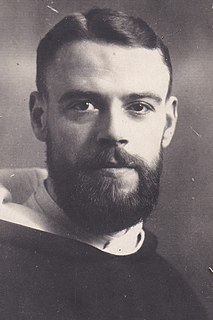 W
WPetrus Joannes Maria Dox was a Belgian Flemish soldier during the First World War known for his opposition to the Belgian Army's French-speaking officers' discriminatory treatment of Flemish-speaking soldiers. His vocal criticism lead to his dismissal from front line service and his reassignment to the woodchopping platoon of the Orne, a penal military unit.
 W
WJoseph Alphonse Marie "Joe" English was a Flemish draughtsman and painter.
 W
WPaul Panda Farnana M'Fumu was a Congolese agronomist and expatriate who lived in Europe in the first decades of the 1900s. He has been considered to be the first Congolese intellectual.
 W
WCyriaque Cyprien Victor Gillain (1857–1931) was a Belgian officer who served in World War I and was chief of the Belgian general staff between April 1918 and February 1920.
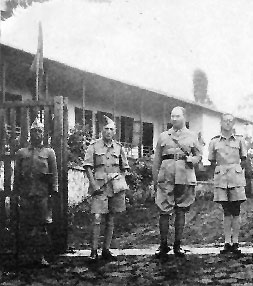 W
WAuguste-Édouard Gilliaert was a Belgian colonial soldier who served in both world wars, and a commander of the Force Publique in the Belgian Congo.
 W
WCornelius Eduardus Hermans was a Belgian Flemish nationalist politician and writer.
 W
WPaul Hoornaert was a Belgian far right political activist. Although a pioneer of fascism in the country he was an opponent of German Nazism and, after joining the Belgian Resistance during the German occupation, died in Nazi custody.
 W
WArmand Christophe Huyghé, later knighted Armand Huyghé de Mahenge, was a Belgian career soldier. He is best known for his service in the Belgian Congo during World War I, where he succeeded Charles Tombeur as commander of the Belgian forces in the East African Campaign in 1917. He commanded the Belgian contingent during the Allied occupation of the Rhineland after the war. During World War II, he was involved in the resistance and, after being captured by the Germans, was deported to Buchenwald concentration camp where he died in 1944.
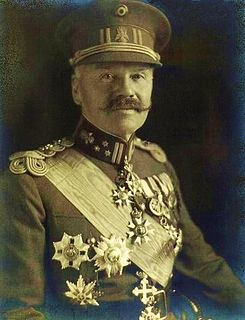 W
WLieutenant-general Baron Alphonse Jacques de Dixmude, often known as General Jacques, was a Belgian military figure of World War I and colonial advocate.
 W
WVictor Koumorico was a Congolese politician who served as President of the Senate of the Democratic Republic of the Congo from July 1961 until November 1962.
 W
WJulien Lahaut was a Belgian politician and communist. He became leader of the Communist Party of Belgium after the First World War. A dissident during the German occupation of 1940–44, he became a vocal advocate for the abolition of the Belgian monarchy during the post-war "Royal Question". His assassination in August 1950, at the height of the crisis, has often been attributed to Belgian royalists but remains unsolved.
Albert Bruno Amédée Lantonnois van Rode was a Belgian Lieutenant General descendant from an aristocratic family. He was Vice-Governor General of the Congo Free State and later commanded a division during World War I.
 W
WGeorges Henri Joseph Édouard Lemaître, was a Belgian Catholic priest, mathematician, astronomer, and professor of physics at the Catholic University of Louvain. He was the first to identify that the recession of nearby galaxies can be explained by a theory of an expanding universe, which was observationally confirmed soon afterwards by Edwin Hubble. He was the first to derive what used to be known as "Hubble's law", but since 2018 has officially been renamed the Hubble–Lemaître law, and made the first estimation of what is still called the Hubble constant, which he published in 1927, two years before Hubble's article. Lemaître also proposed what later became known as the "Big Bang theory" of the origin of the universe, initially calling it the "hypothesis of the primeval atom".
 W
WGerard Mathieu Joseph Georges, count Leman was a Belgian general. He was responsible for the military education of King Albert I of Belgium. During World War I he was the commander of the forts surrounding the Belgian city of Liège. The German Forces had to use heavy artillery to break through the defences and capture Leman as a prisoner of War. He was released at the end of the war and died a hero, in 1920.
 W
WLeopold III was King of the Belgians from 1934 until 1951. On the outbreak of World War II, Leopold tried to maintain Belgian neutrality, but after the German invasion in May 1940, he surrendered his country, earning him much hostility, both at home and abroad.
 W
WVictor Linart was a Belgian cyclist. Between 1920 and 1931 he won four UCI Motor-paced World Championships in the professionals division and finished four times in second or third place.
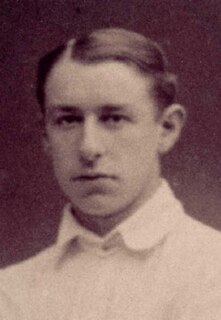 W
WPaul Loicq was a Belgian lawyer, businessman and ice hockey player, coach, referee and administrator.
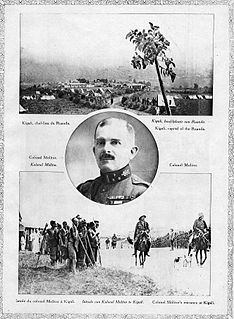 W
WPhilippe Molitor was a Belgian military officer. He is known for his role as commander of the Brigade Nord of the Force Publique, during the Tabora Offensive in the East African Campaign.
 W
WLieutenant Jan Olieslagers was a Belgian motorcycle and aviation pioneer who set world records with both types of machinery. He became a flying ace during World War I despite his indifference in claiming victories; he was credited with six confirmed victories, seventeen unconfirmed, and an unknown number unclaimed. He later was instrumental in developing Antwerp's airport.
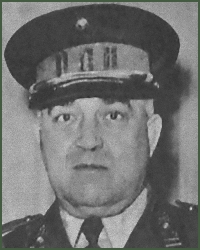 W
WFrançois-Fidèle-Oscar Michiels was a Belgian military officer who served in World War I and World War II.
 W
WConstant Permeke was a Belgian painter and sculptor who is considered the leading figure of Flemish expressionism.
 W
WHubert Marie Eugène Pierlot was a Belgian politician and 32nd Prime Minister of Belgium, serving between 1939 and 1945. Pierlot, a lawyer and jurist, served in World War I before entering politics in the 1920s. A member of the Catholic Party, Pierlot became Prime Minister in 1939, shortly before Belgium entered World War II. In this capacity, he headed the Belgian government in exile, first from France and later Britain, while Belgium was under German occupation. During the German invasion of Belgium in May 1940, a violent disagreement broke out between Pierlot and King Leopold III over whether the King should follow the orders of his ministers and go into exile or surrender to the German Army. Pierlot considered Leopold's subsequent surrender a breach of the Constitution and encouraged the parliament to declare Leopold unfit to reign. The confrontation provoked a lasting animosity between Pierlot and other conservatives, who supported the King's position and considered the government's exile to be cowardly.
 W
WLieutenant General Jean-Baptiste Piron was a Belgian military officer, best known for his role in the Free Belgian forces during World War II as commander of the 1st Belgian Infantry Brigade, widely known as the "Piron Brigade", between 1942 and 1944.
 W
WJozef Maria Raskin was a Belgian artist, painter, draftsman, and Scheutist missionary who served in World War I and became a missionary in China from 1920 to 1934. Later, during World War II, he was drafted into the Belgian army as a chaplain and was a personal advisor to King Leopold III. While operating under the code name Leopold Vindictive 200 for the Dutch resistance, on 1 May 1942 he was arrested by the Gestapo, tried and convicted, and on 18 October 1943 was guillotined. A statue honoring his service stands in Aarschot. After World War II, a book about Raskin's exploits in both world wars was written by Jozef De Vroey, himself a Catholic priest and survivor of both these conflicts, under the title Pater Raskin in de beide wereldoorlogen.
 W
WLieutenant-General baron Louis Ruquoy was the Chief of Staff of the Belgian Army during the second part of the First World War.
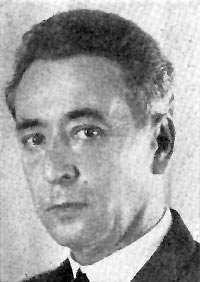 W
WPierre, 1st Count Ryckmans, was a Belgian peer and civil servant who served as Governor-General of Belgium's principal African colony, the Belgian Congo, between 1934 and 1946. Ryckmans began his career in the colonial service in 1915 and also spent time in the Belgian mandate of Ruanda-Urundi. His term as Governor-General of the Belgian Congo coincided with World War II in which he was instrumental in bringing the colony into the war on the Allied side after Belgium's defeat in May 1940. He was also a prolific writer on colonial affairs. He was posthumously created a peer of the realm in the Belgian nobility with the rank of Graaf in 1962.
 W
WAugust Edmond De Schryver was a Belgian politician. During the course of his political career, between 1935 and 1960, he held a number of ministerial portfolios within several successive governments including the Belgian government in exile during World War II. He was also President of the Christian Social Party between 1945 and 1949. As Minister of the Colonies until 1960, he presided over the independence of the Belgian Congo.
 W
WJozef Simons was a Flemish writer and poet. Jozef Simons was active in the socio-cultural life of the Campine, among other things as a President of the Association of Campine writers (1937–1948). Together with Felix Timmermans, Ernest Claes and the poet Jozef De Voght he was one the writers of the Belgian Campine during the interbellum.
 W
WAlphonse Léopold Bauduin Six was a Belgian football player.
 W
WPrince Sixtus of Bourbon-Parma was a member of the House of Bourbon-Parma, a Belgian officer in World War I, and the central figure in the Sixtus Affair, an attempt to negotiate a treaty to end Austria-Hungary's participation in the Great War separate from its Central Powers allies. He also wrote a number of books.
 W
WMarcel Thiry was a French-speaking Belgian poet. During World War I, he and his brother Oscar served in the Belgian Expeditionary Corps in Russia.
 W
WLieutenant General Charles Tombeur was a Belgian military officer and colonial civil servant. As well as holding several major administrative positions in the Belgian Congo, he is particularly known for his role as commander of the Belgian colonial military, the Force Publique, during the first years of World War I. His military career culminated in the capture of Tabora in German East Africa in September 1916.
 W
WBaron Frédéric Joseph Vandemeulebroek was a Belgian Liberal politician and burgomaster of Brussels between 1939 and 1942 and again between 1944 and 1956.
 W
WJoris Van Severen was a Belgian politician and ideologue of the Flemish Movement. A leading figure of pre-World War II Flemish nationalism, he co-founded the extreme-right group Verdinaso.
 W
WLieutenant-general BEM Victor Jean Clement, Baron van Strydonck de Burkel was a general of the Belgian Army and the primary architect of the formation of the Free Belgian Forces after Belgium's official surrender on May 28, 1940 in World War II.
 W
WLieutenant-General Félix Maximilien Eugène Wielemans was the Chief of Staff of the Belgian Army during the First World War.
 W
WThe woodchoppers of the Orne were 10 Flemish soldiers during the First World War punished for their active or passive involvement in the Flemish Movement in the Belgian Army. They were removed from their platoons and moved to a penal military unit called the Special Forestry Platoon in 1918. In this penal military unit, stationed in Orne, Normandy in France, they had to work as woodchoppers as unfree labour. They were required to work 12 hours a day in harsh living conditions, they were paid 1 Belgian franc each day.
 W
WHendrik Emil (Rik) Wouters was a Belgian painter, sculptor and draughtsman. Wouters produced 200 paintings, drawings and sculptures in his 34 years before his illness-caused death. he died partway through the First World War on 11 July 1916 in Amsterdam. A sculptor, painter, draughtsman and etcher of typically fauvist style, Wouters' art resembled the works of artists including Henri Matisse, Paul Cézanne and André Derain- the "forefathers" of Fauvism.
 W
WXavier, Duke of Parma and Piacenza, known in France before 1974 as Prince Xavier de Bourbon-Parme, known in Spain as Francisco Javier de Borbón-Parma y de Braganza or simply as Don Javier, was the head of the ducal House of Bourbon-Parma and Carlist pretender to the throne of Spain.